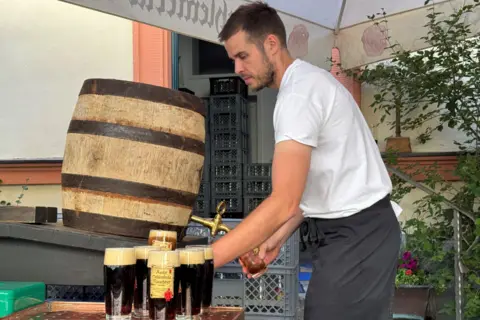In an era marked by economic and political shifts, Bielefeld, a city in the state of North Rhine-Westphalia, Germany, is gaining recognition for its steadfastness and anticipated stability. Home to roughly 338,000 inhabitants, Bielefeld boasts all the characteristics of an affluent German municipality, including an opera house, a historical castle, and a charming downtown area.
Despite its developmental prosperity, Bielefeld was historically the focus of ridicule due to its unremarkable reputation, becoming the punchline of a ubiquitous joke that questions its very existence. "Have you ever visited Bielefeld?" people would jest. "Can you name anything that distinguishes it?" The answer typically offered is a resounding "no." Former Chancellor Angela Merkel even contributed to the jest in 2012, quipping about her service in a non-existent Bielefeld.
In a bold and playful manner, Bielefeld embraced this humorous branding campaign as part of its outreach. However, as local DJ and Radio Bielefeld host Timo Teichler noted, the relentless laughter over the "non-existence" of Bielefeld can grow tiresome for residents. "Yeah, 'Bielefeld doesn’t exist.' I despise that joke,” he expressed candidly.
Now, in a time when predictability and stability have become increasingly valued by citizens, Bielefeld stands out as a symbol of normalcy and reliability – a notable contrast to the chaos often seen in larger urban centers in Germany and beyond.
















